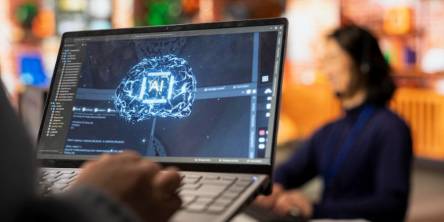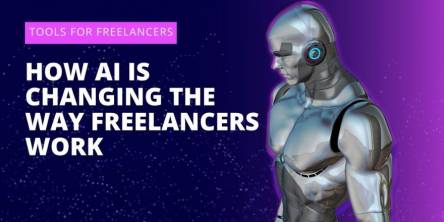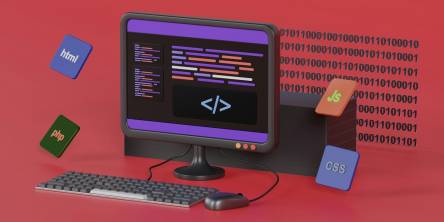The Future of Work with AI: Jobs, Skills, and Opportunities

Artificial intelligence (AI) is no longer a distant promise—it’s here, reshaping industries, redefining job roles, and altering the skills we need to thrive. While much of the public conversation focuses on job displacement, the reality is far more nuanced. AI is eliminating some roles, transforming many others, and creating entirely new categories of work. The challenge and opportunity for individuals, businesses, and policymakers is to navigate this transition effectively.
The Impact of AI Across Industries
Manufacturing and Automation
AI-powered robotics and predictive analytics have revolutionized manufacturing. Factories are moving toward “lights-out” operations—plants that can run without human presence for extended periods. Predictive maintenance powered by AI sensors can detect equipment issues before they become failures, saving millions in downtime.
Healthcare Transformation
From AI-assisted diagnostics to personalized treatment recommendations, healthcare is seeing a surge in AI adoption. Radiology, pathology, and drug discovery now rely heavily on machine learning algorithms, freeing human experts to focus on complex cases and patient relationships.
Finance and Decision-Making
In finance, AI is automating routine tasks such as fraud detection, loan risk assessment, and portfolio optimization. The role of human analysts is shifting toward strategic decision-making and interpreting AI-generated insights.
Jobs That AI Is Creating
While automation is replacing some roles, AI is also generating new ones.
AI Trainers and Data Annotators
For AI models to function, they need vast amounts of labeled data. This has given rise to jobs focused on curating, annotating, and verifying datasets.
AI Ethics and Governance Specialists
As AI spreads, so does the need for oversight. Experts in AI ethics, compliance, and transparency are becoming vital to ensure technology is deployed responsibly.
Human-AI Collaboration Designers
These professionals design workflows where humans and AI systems complement each other—maximizing productivity while maintaining human judgment.
Skills for the AI-Driven Economy
Digital Literacy
A baseline understanding of how AI works is becoming essential across professions. Even non-technical roles increasingly require familiarity with AI-driven tools.
Critical Thinking and Creativity
AI excels at pattern recognition but struggles with complex problem-solving in ambiguous scenarios. Skills in creative thinking, interdisciplinary synthesis, and emotional intelligence remain uniquely human advantages.
Data and Algorithmic Fluency
Workers in marketing, logistics, HR, and other fields benefit from knowing how to interpret AI outputs and question algorithmic assumptions.
Midpoint Insight: Leveraging AI as a Partner
The shift is not about humans competing with AI, but collaborating with it. In many professions, those who adopt AI as a “co-pilot” will outperform those who ignore it.
For individuals seeking to understand how AI might enhance their work or career, experimenting in a safe, exploratory environment—such as using a Free AI chat tool—can help reveal the ways AI interprets information, generates insights, and adapts to different queries. These interactions can build intuition about AI’s strengths and limitations, which is critical for effective collaboration.
The Global Opportunity
Developing Economies
AI could help leapfrog infrastructure challenges. For example, AI-driven mobile banking platforms in Africa are expanding financial inclusion without traditional banking infrastructure.
Small and Medium Enterprises (SMEs)
AI tools once limited to large corporations are now accessible to smaller businesses via cloud platforms, enabling competitive advantages in customer service, logistics, and marketing.
Remote and Hybrid Work
AI-powered project management and communication tools are enabling global collaboration, reducing geographical barriers to high-quality employment.
Challenges in the AI Future of Work
Job Displacement and Reskilling
According to the World Economic Forum, AI could displace 85 million jobs by 2025 while creating 97 million new ones. The transition will require large-scale reskilling initiatives, with a focus on both technical and soft skills.
Ethical and Social Implications
AI decisions can reflect biases present in their training data. Without oversight, these biases could perpetuate inequality in hiring, lending, and other critical areas.
Mental and Emotional Impact
Rapid technological change can create anxiety among workers, highlighting the importance of mental health support during transitions.
Expert Commentary: The Human Edge
Dr. Priya Ramanathan, a leading AI and workforce policy expert, emphasizes:
“The most successful workers in an AI-driven economy will be those who understand not only how to use AI tools but how to guide them—asking the right questions, framing the right problems, and interpreting answers in context.”
Her insight underlines a critical point: AI may process data faster than humans, but it lacks contextual understanding and value-based reasoning.
Preparing for the AI-Driven Future
Lifelong Learning
Traditional education models are too slow for the pace of AI evolution. Workers will need to adopt a mindset of continuous upskilling through online courses, workshops, and self-guided study.
Cross-Disciplinary Skills
The most in-demand professionals will combine AI knowledge with expertise in another domain—such as law, design, medicine, or environmental science.
Human-Centered AI Design
Participating in the creation of AI systems, rather than just consuming them, will ensure these tools reflect diverse perspectives and societal needs.
Conclusion: Opportunity Through Adaptation
The future of work with AI is neither a utopia nor a dystopia—it is a complex transformation that offers both challenges and immense opportunities.
Those who adapt early, learning to work alongside AI and leveraging it for productivity, creativity, and problem-solving, will find themselves in high demand. Governments, educators, and companies must collaborate to provide reskilling pathways, ethical guidelines, and mental health support to navigate this shift responsibly.
Ultimately, AI is a tool—and like all tools, its value depends on how we use it. By embracing it thoughtfully and strategically, we can build a future of work that is more innovative, inclusive, and resilient than ever before.
Similar Articles
How AI SDRs turn first contact into booked meetings with smart outreach strategies in this step-by-step journey breakdown.
How AI is transforming freelancing by boosting productivity, streamlining tasks, and reshaping the future of independent work.
AI chatbots are reshaping scam prevention with real-time detection, deepfake defense, and personalized protection against cybercriminals.
When I first started working in branding, creating a logo was a long and expensive process. Ordering from a designer required weeks of discussions and a budget that small businesses often couldn’t afford.
Generative AI is not just another addition to the toolbox of products; it will soon serve as the co-pilot for the entire lifecycle process, including discovery and delivery.
Learn how AI code generation speeds up software development by reducing repetitive tasks, improving code quality, and supporting Agile and DevOps teams.
Artificial Intelligence (AI) has transformed most industries to be more efficient, individualized, and automate the heavily complicated tasks. Nevertheless,
Transform your photo into a Disney Pixar style character with Xole AI. Create high quality cartoon images in just three simple steps.
AI tools have transformed the way professionals approach business card design. With a few clicks, anyone can generate a layout, integrate a logo, and export a ready-to-use card—without prior design knowledge









